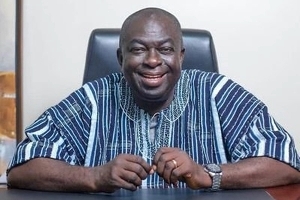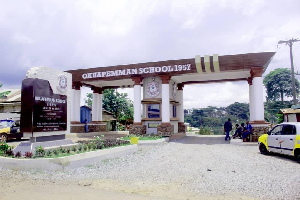General News of Wednesday, 18 November 1998
Source: --
Expand democratic opportunities - Gyima Boadi
Accra (Greater Accra), 18 Nov. 1998 - Professor E. Gyima Boadi of the Political Science Department of the University of Ghana, yesterday urged African governments to widen the scope of the new democratic dispensation sweeping across the continent. He said they must work hard to build upon the political and socio- economic achievements in recent years to enable them to set their own development priorities. Prof. Gyima Boadi was delivering a lecture titled "Evolution of the nation state in Africa: the period since independence". He cited Botswana, Mauritius and South Africa as examples of states whose experiences could benefit other African countries currently in the transitional stages of development. The five-day lecture in Accra under the theme, "The notion of the state in contemporary Africa", forms part of the activities marking the 39th anniversary of the Ghana Academy of Arts and Sciences. Prof. Gyima Boadi wondered whether some African governments can succeed by applying primitive techniques including disregard for the rule of law, emasculation of civil society, centralised control and reward for mediocrity despite their recent achievements. He categorised contemporary African nations into three groups, saying Botswana, Mauritius and South Africa are the few poised to consolidate economic and political development. The second set including Ghana, Cote d'Ivoire, Uganda, Zambia, Malawi, Kenya and Mozambique, he said have a combination of "relatively effective" leadership and have access to international assistance which has brought partial economic recovery and state rehabilitation. The third group including Central African Republic, Angola, Sierra Leone and until recently, Liberia, Congo and Somalia, have either collapsed or are collapsing from contests over sovereignty and self-determination. Reacting to a question, Prof. Albert Adu Boahen, a historian and politician, said the current predicament of African states is due "entirely to the persistent canker of military interference in civil governance.'' He said had it not been for the frequent military intervention, African governments would have advanced in their democratic practices and made the ballot box the main fixture in the change of government.










